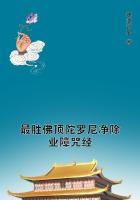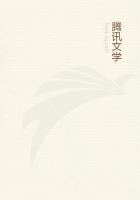for though there be but one sun existing in the world, yet the idea of it being abstracted, so that more substances (if there were several)might each agree in it, it is as much a sort as if there were as many suns as there are stars. They want not their reasons who think there are, and that each fixed star would answer the idea the name sun stands for, to one who was placed in a due distance: which, by the way, may show us how much the sorts, or, if you please, genera and species of things (for those Latin terms signify to me no more than the English word sort) depend on such collections of ideas as men have made, and not on the real nature of things; since it is not impossible but that, in propriety of speech, that might be a sun to one which is a star to another.
2. The essence of each sort of substance is our abstract idea to which the name is annexed. The measure and boundary of each sort or species, whereby it is constituted that particular sort, and distinguished from others, is that we call its essence, which is nothing but that abstract idea to which the name is annexed; so that everything contained in that idea is essential to that sort. This, though it be all the essence of natural substances that we know, or by which we distinguish them into sorts, yet I call it by a peculiar name, the nominal essence, to distinguish it from the real constitution of substances, upon which depends this nominal essence, and all the properties of that sort; which, therefore, as has been said, may be called the real essence: v.g. the nominal essence of gold is that complex idea the word gold stands for, let it be, for instance, a body yellow, of a certain weight, malleable, fusible, and fixed. But the real essence is the constitution of the insensible parts of that body, on which those qualities and all the other properties of gold depend. How far these two are different, though they are both called essence, is obvious at first sight to discover.
3. The nominal and real essence different. For, though perhaps voluntary motion, with sense and reason, joined to a body of a certain shape, be the complex idea to which I and others annex the name man, and so be the nominal essence of the species so called: yet nobody will say that complex idea is the real essence and source of all those operations which are to be found in any individual of that sort. The foundation of all those qualities which are the ingredients of our complex idea, is something quite different: and had we such a knowledge of that constitution of man, from which his faculties of moving, sensation, and reasoning, and other powers flow, and on which his so regular shape depends, as it is possible angels have, and it is certain his Maker has, we should have a quite other idea of his essence than what now is contained in our definition of that species, be it what it will: and our idea of any individual man would be as far different from what it is now, as is his who knows all the springs and wheels and other contrivances within of the famous clock at Strasburg, from that which a gazing countryman has of it, who barely sees the motion of the hand, and hears the clock strike, and observes only some of the outward appearances.
4. Nothing essential to individuals. That essence, in the ordinary use of the word, relates to sorts, and that it is considered in particular beings no further than as they are ranked into sorts, appears from hence: that, take but away the abstract ideas by which we sort individuals, and rank them under common names, and then the thought of anything essential to any of them instantly vanishes: we have no notion of the one without the other, which plainly shows their relation. It is necessary for me to be as I am; God and nature has made me so: but there is nothing I have is essential to me. An accident or disease may very much alter my colour or shape; a fever or fall may take away my reason or memory, or both; and an apoplexy leave neither sense, nor understanding, no, nor life. Other creatures of my shape may be made with more and better, or fewer and worse faculties than I have; and others may have reason and sense in a shape and body very different from mine. None of these are essential to the one or the other, or to any individual whatever, till the mind refers it to some sort or species of things; and then presently, according to the abstract idea of that sort, something is found essential. Let any one examine his own thoughts, and he will find that as soon as he supposes or speaks of essential, the consideration of some species, or the complex idea signified by some general name, comes into his mind; and it is in reference to that that this or that quality is said to be essential. So that if it be asked, whether it be essential to me or any other particular corporeal being, to have reason? I say, no; no more than it is essential to this white thing I write on to have words in it. But if that particular being be to be counted of the sort man, and to have the name man given it, then reason is essential to it; supposing reason to be a part of the complex idea the name man stands for: as it is essential to this thing I write on to contain words, if I will give it the name treatise, and rank it under that species. So that essential and not essential relate only to our abstract ideas, and the names annexed to them; which amounts to no more than this, That whatever particular thing has not in it those qualities which are contained in the abstract idea which any general term stands for, cannot be ranked under that species, nor be called by that name; since that abstract idea is the very essence of that species.















